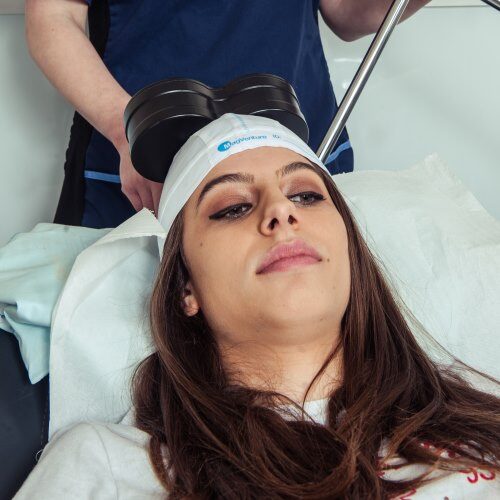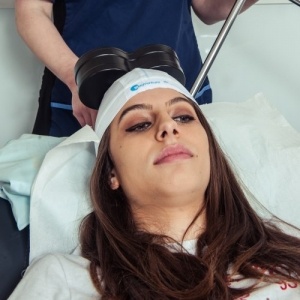TMS Maintenance & Outlook After Depression Treatment
April 2, 2019 - Smart TMS

Smart TMS Medical Director and Consultant Psychiatrist Dr Leigh Neal explains the role of maintenance after treatment for depression and the longer term outlook after Transcranial Magnetic Stimulation compared to other treatments.
This was discussed in his recent interview with personal trainer and fitness expert Scott Laidlaw.
Dr Neal told Scott that there are no hard and fast rules when it comes to maintenance. The approach varies by patient according to their individual needs and response to treatment.
“The maintenance issue is something which hasn’t been very heavily researched, but there are a number of studies looking at that. It seems that there are various ways you can manage TMS after a course of treatment.
“So let’s say someone has had 20-30 sessions and they’ve had a good response and they’ve fully recovered from the depression. They can then continue and wait til they get a slight relapse in the depression – they can come back to us and have just a few sessions and that will usually get the person back on track.
“Or if they’ve had a bigger relapse they can have a more full course of treatment.
“Or alternatively you can have what’s called maintenance treatment, which is we provide 2 sessions a month; and that probably provides maximal protection against a relapse. And so if during the course of that maintenance treatment there were evidence for a slight relapse, which we’d pick up if we were monitoring on a monthly basis, they’d have a few more sessions and then recover. So probably the best protective treatment in terms of maintenance is to have 2 sessions per month after, that probably gives the best possibility of maintaining recovery”
The Outlook After Depression Treatment
Scott asked Dr Neal to explain the longer term outlook after treatment for depressive illness and whether the recurrence of symptoms reduced with maintenance treatment. Leigh explained:
“It’s quite a complicated subject. If you treat anybody with anything for a depressive episode and then don’t give them any treatment afterwards, there will actually be a 70-80% relapse rate in the following 12 months. So depression has a very high propensity to come back.
“If you then take that person and give them antidepressants for the following 12 months, there will still be a 40-60% relapse rate, so it’s quite high even with antidepressants.
“If after you treat the person with TMS you then give them maintenance treatment, there’s a 40% relapse rate. So you can see although 40% sounds quite high, it’s actually a lot less than the other options.
“You also have to remember that you’re able to intervene very quickly at the time of relapse to stop it developing into a full relapse. So the true preventative action of having maintenance TMS is that you can probably reduce a full-blown relapse into a full-blown episode of depression by about 95%. That’s probably the best way of preventing a relapse.“
 Compared to Other Options
Compared to Other Options
Scott commented that TMS prognosis still compared favourably to the other treatments. Dr Neal explained:
“Yes, you’ve got to look at it compared to what the other options are. I mean there isn’t anything which is fool-proof in terms of preventing relapse.”
The Importance of Maintenance
Dr Neal stressed that the fundamental issue is that depression is a difficult condition and prone to recurrence.
“Depression just has a really high propensity to recur and you have to keep on top of it.”
Listen to the full podcast on scottlaidler.com.
The full interview includes further discussion of TMS as well as alcohol and general health. You can also download the mp3 to listen offline.
SMART TMS CLINICS
Smart TMS was established in 2015, providing TMS treatment at their original South Kensington/Brompton Cross centre in London. The company now has the UK’s biggest network of TMS treatment centres and is committed to further expansion in order to make the treatment available in more cities, reaching patients who need an alternative treatment option for their conditions.
CONTACT US
For any other queries or for patients wishing to book an appointment at one of our UK clinics, please contact us:
- Tel: 0345 222 5678
- Email: info@smarttms.co.uk
Irish patients may contact Our Dublin Clinic direct on:
- Email: info@smarttms.ie
- Tel: 353 (01) 254 2514
- Website: www.smarttms.ie










